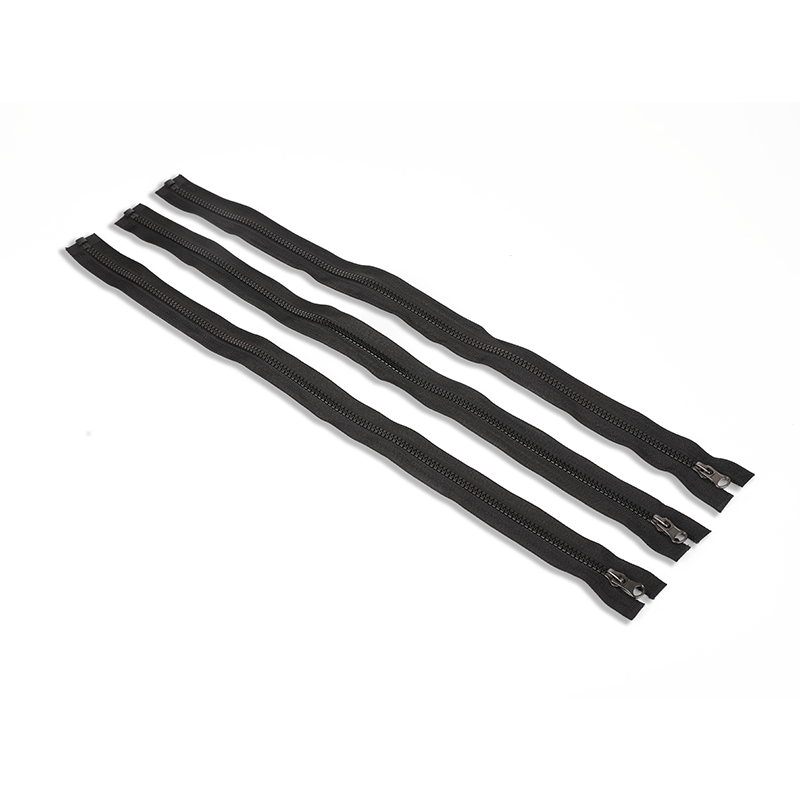Web Menu
Product Search
Exit Menu

Why Are Resin Zippers the Future of Durable and Lightweight Fastening Solutions?
In the ever-evolving world of textiles and fashion, zippers play a critical role in ensuring functionality and durability. For years, metal zippers have dominated the market; however, resin zippers are quickly emerging as a more practical, lightweight, and durable alternative. The development of zippers marks a significant shift in fastening solutions, offering numerous benefits that make them ideal for a wide range of applications. This article will explore why Sale resin zippers are poised to shape the future of durable and lightweight fastening solutions.

One of the standout features of resin zippers is their lightweight construction. Traditional metal zippers, while durable, can add significant weight to garments, bags, or equipment. Zippers, on the other hand, are significantly lighter, which contributes to an overall reduction in weight. This is particularly beneficial in industries where the weight of materials is a critical factor, such as in outdoor gear, athletic wear, and travel luggage.
For example, in the case of backpacks or jackets designed for hiking or activewear, reducing weight is essential for improving comfort and performance. Resin zippers provide the strength needed for these items without adding the extra weight that metal zippers often bring. Their lightweight nature makes them an attractive choice for manufacturers looking to create products that are easier to carry or wear, enhancing overall user experience.
Unlike metal zippers, which are prone to rust and corrosion when exposed to moisture, OEM Red Zippers are naturally resistant to these elements. This makes them an ideal choice for use in environments where exposure to water or humidity is frequent. Outdoor apparel, rain gear, and diving equipment are just a few examples of items that benefit from resistance to corrosion and rust.
The weather resistance of resin zippers also makes them suitable for use in harsh environmental conditions. Whether in humid tropical climates or cold, wet environments, zippers maintain their functionality without degrading, unlike their metal counterparts that can weaken or become unusable due to rust or corrosion. This durability ensures that zippers continue to perform effectively over time, reducing the need for frequent repairs or replacements.
Resin zippers are known for their flexibility, making them suitable for a wide range of applications. The material can be molded into various shapes and sizes, allowing manufacturers to design zippers that meet specific requirements for different products. This flexibility enables the creation of zippers for everything from fashion accessories to industrial applications, ensuring that they provide the right fit for each use case.
Additionally, resin zippers can be customized with various color options and designs, providing a unique aesthetic appeal for fashion items and bags. Their versatility is not only functional but also adds a creative touch to the overall design of a product. This adaptability gives manufacturers the freedom to create zippers that align with the design vision of their products while maintaining their functionality and durability.
Another compelling advantage of resin zippers is their cost-effectiveness in manufacturing. Zippers are typically less expensive to produce than metal zippers, which can require more labor-intensive processes and materials. The production of zippers is streamlined, making it a more affordable option for companies looking to reduce manufacturing costs.
As sustainability becomes an increasing concern for both businesses and consumers, Decorative Zipper Pulls Manufacturers are emerging as a more environmentally friendly option compared to metal zippers. Resin is often a more eco-friendly material, with many manufacturers focusing on producing recyclable or biodegradable zippers. In addition, zippers are lighter and typically require less energy to produce, which contributes to a lower carbon footprint during manufacturing.
Resin zippers are rapidly becoming a preferred solution for fastening needs in a wide array of industries. Their combination of lightweight construction, corrosion resistance, flexibility, cost-effectiveness, and environmental benefits positions them as the future of durable and sustainable fastening solutions. As industries continue to prioritize innovation and sustainability, resin zippers are emerging as a versatile and reliable alternative to traditional metal zippers.
Product Category
Related Products
If you are interested in our products, please consult us
CONTACT DETAILS
- Address : Pujiang Jietai Zipper Co., Ltd.
- Fax : 0086-057985168900
- Tel: 0086-057985168900
- Email: [email protected]

 English
English 中文简体
中文简体 Español
Español عربى
عربى

